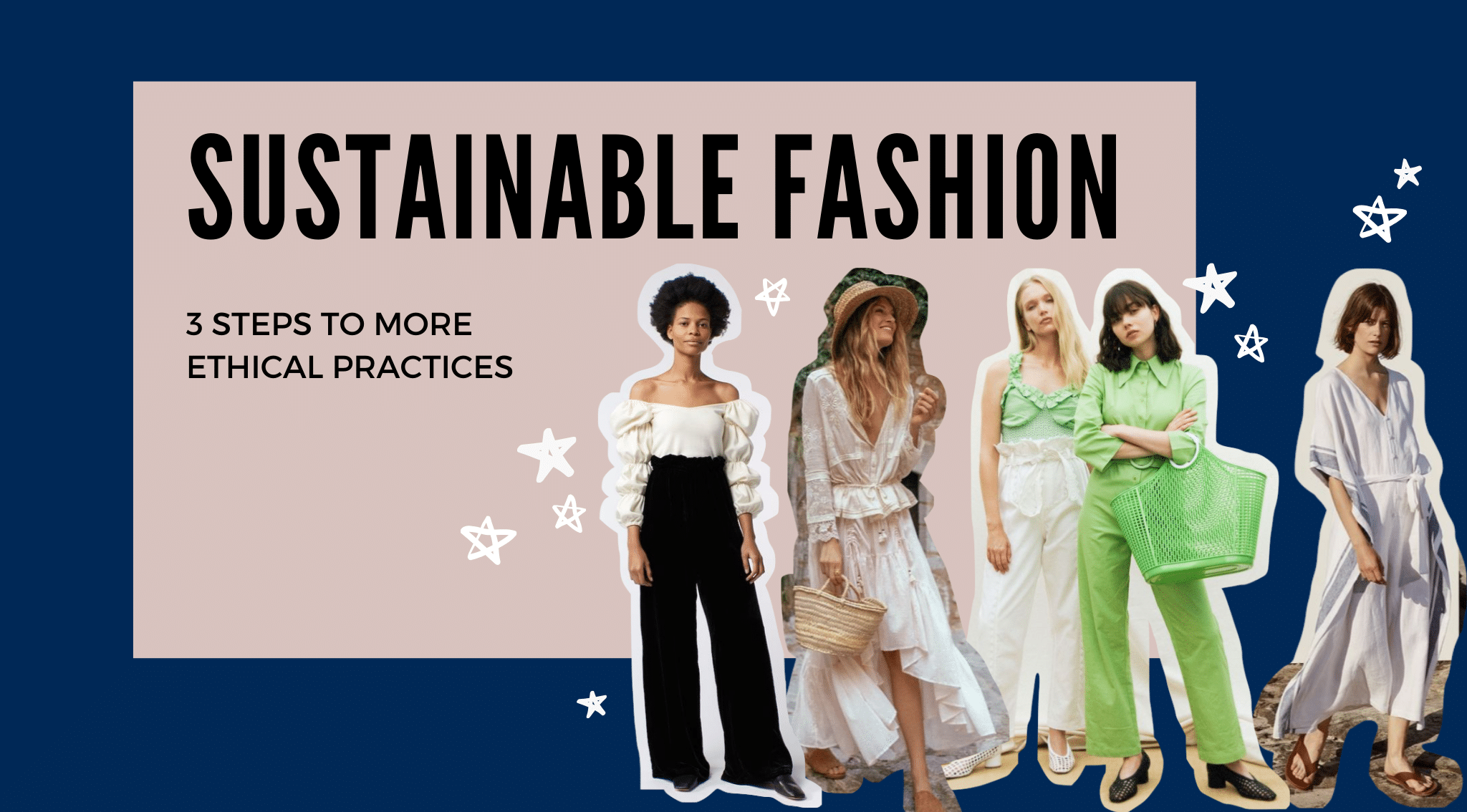The words ethical and sustainable don’t often invoke images of fashion industry, however it is one industry where major players are taking action to reduce their carbon footprint and it’s time to look how your everyday fashion practices can impact the environment. When we think about living a more ethical lifestyle it can often seem overwhelming however there are 3 easy steps you can implement that will help reduce your impact.
1) Reuse
There are numerous ways we can breathe new life into our clothing to give it a second chance:
- We can fix clothing that needs repairing, it could be as replacing a missing button or stitching a tear closed that means a once favourite piece is now wearable again.
- If clothing doesn’t fit correctly anymore but is still in good condition consider having the garment altered to suit your new shape and rediscover why you feel in love with it in the first place.
- Upcycle old threads by making them feel current. It could be as simple as adding new buttons or distressing a garment, dying it a different colour or even changing a hem length.
- Instead of throwing clothing out that often ends up in landfill, donate to second-hand stores, charities that accept clothing donations or even consider a consignment store.
- Consider buying second-hand or vintage yourself. Why buy a “vintage looking” tee brand new when you could source a true vintage treasure? Not only will you often be helping out a local charity or business when buying second-hand you will also be able to find unique pieces that will become your next favourite wardrobe staple.
2) Choose Wisely
Vivienne Westwood said it best “Buy less, choose well, make it last”. Shop consciously by asking yourself questions such as:
- Why am I buying this?
- Does this suit my personal style?
- Can I mix and match this with at least 5 other pieces in my wardrobe?
- Will I still want to wear this in a year’s time?
By asking ourselves some straight forward questions when shopping we make better shopping decisions and there is less chance of buyer’s remorse and therefore a wardrobe full of unworn pieces.
3) Educate Yourself
Educate yourself on brand and labels’ practices including their manufacturing practices, the materials they use and how their employees (factory employees included) are treated and paid. If a brand isn’t transparent with their own ethical practices don’t be afraid to ask. By supporting labels and brands that recycle water and materials, choose ethically sourced fabrics, pay their employees fairly, are animal friendly or even engage with the community means as a society we make a statement that caring for our planet and people matter beyond fast fashion trends.
12 Sustainable & Ethical Brands:
- Nobody Denim
- Nagnata
- Vege Threads
- Elk the Label
- Salt Gypsy
- KITX
- House of Sunny
- BITE Studios
- The Social Outfit
- Veja
- Arnsdorf
- Citizen Wolf
Want to know more ethical and sustainable fashion labels? Ethical Clothing Australia has a great list of fashion, shoe & homeware brands here
Really it comes down to those words by Vivienne Westwood, if you buy less, choose well and make it last you’ll always make ethical and smart shopping decisions.

